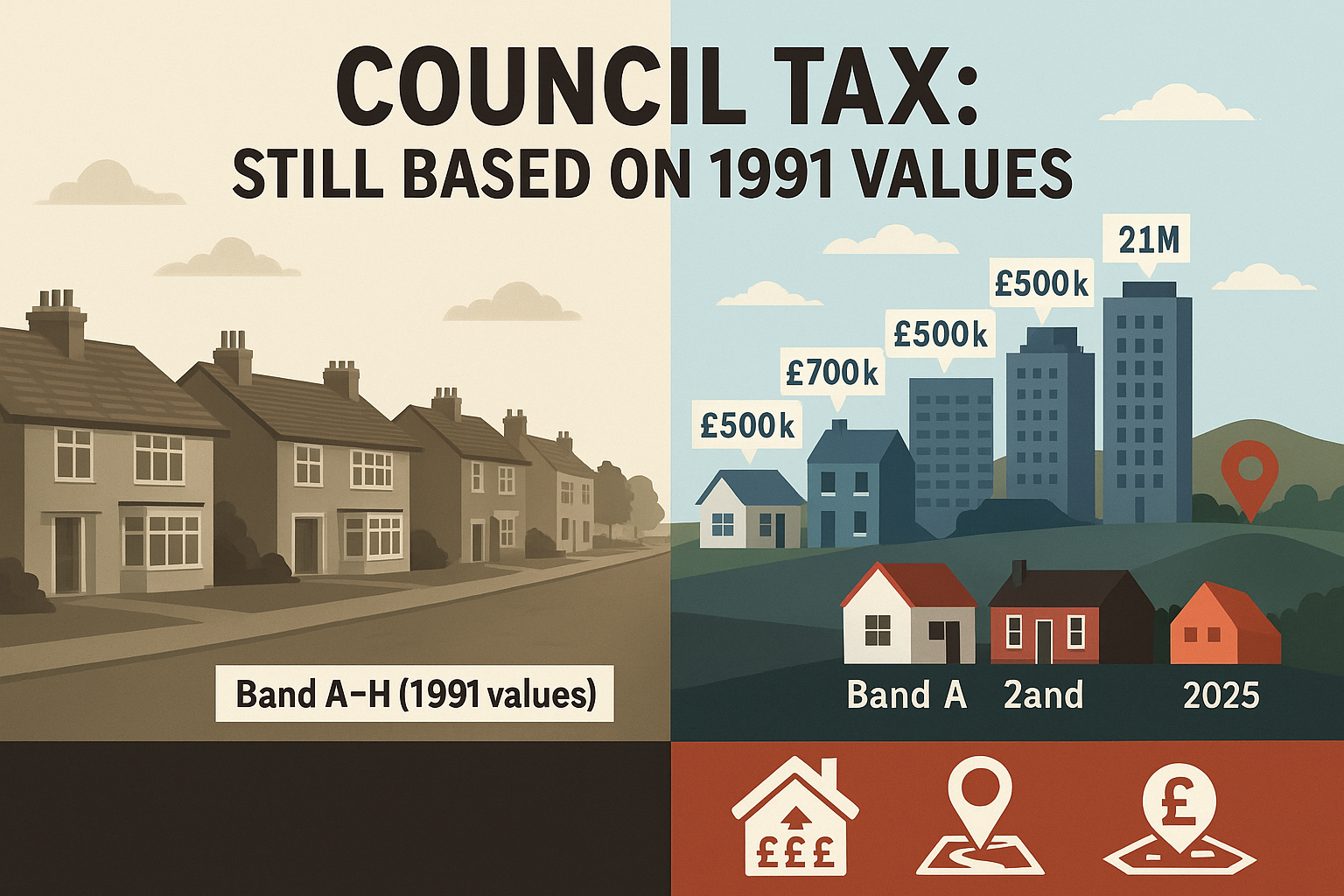Labour's latest shot at reforming council tax is to be welcomed, but it goes only so far.
As Simon Jenkins says, tidying up how we pay for councils does matter, but does not come remotely close to addressing the structural flaw of a 1991 property-value-based tax.
Council tax was introduced in 1993 to replace the unpopular poll tax, which was based largely on property prices in 1991. The idea was to simplify local taxation by grouping houses into bands of worth.
While this made sense back in 1991, 30 years on and property prices in the regions have changed at different rates, while the council taxes charged are still based on those original 1991 valuations.
So today, a band H property in London may be worth twice as much as a band H property in Hull, but they pay the same council tax.
Labour has tried to address this without addressing it by redistributing council funding to favour under-resourced regions. While this does address some regional inbalance, it does nothing to correct the vastly unequal valuations between regions, or the fact that richer home-owners' equity growth remains untaxed.
The simple and unfortunate truth is that in a nation of middle class property owners, no minister has been brave enough to revisit the old valuation bands, and fear of fundamental reform seems to linger even when statistics show that millions more could be assisted by addressing the issue (no pun intended).

What Could Be Done Instead?
Two alternative solutions include a modern-day wealth tax on property value, and a dynamic land-value tax.
A Wealth tax on property equity
A recent editorial in The Independent promoted a one-time property wealth tax imposing a small percentage on annual unrealized increases in house worth—imposing a sliding scale on the increase in equity over some point on owners. This could raise billions to fund public services while being spread thinly enough not to hurt mid-income households. Most important, it would tax on current real gains—not out-of-date values from thirty years ago.
A Land-value tax (LVT)
Meanwhile, think tank IPPR has urged that council tax is abandoned in favour of a land-value tax, which taxes only the unimproved value of the land, rather than buildings. Since land value is a reflection of location and access to infrastructure—not of improvements to the house—this tax is harder to avoid, and encourages sound land use. Notably, land values rise with society's planning and infrastructure decisions, so the community takes some of that gain.
Both approaches have limitations...
A wealth tax would call for exact periodic valuations of assets and likely encounter political resistance from entrenched owners.
An LVT would demand comprehensive land registry data and a cultural shift in the approach to how property taxes are framed.
Final Thoughts...
Labour’s funding rebalancing is a step forward—but it’s a stopgap.
We can't go on relying on a council tax valuation system based on 35 year old property values, at some point a government is going to have to man-up!